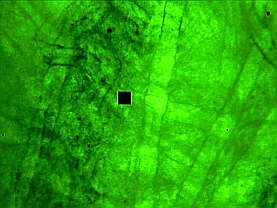Questioned Document Examination
Microspectrophotometers are used for non-destructive examination of inks and papers.
Questioned document examination is the field that relates to the forensic examination of documents, inks and papers. One of the most common tasks of the questioned document examiner is to determine if a suspect document is an original. Often tests are done by comparison with other original samples or by comparison with standard reference materials. Questioned document examiners work with samples that range from historical treatises to currency to identification papers such as passports.
Many types of tests can be performed by the questioned document examiner. These range from simple imaging to advanced spectroscopic analysis. Due to the microscopic nature of many of the unique features in documents, microprinting being just one example, microspectrophotometers such as the 20/30 PV™ and the CRAIC Apollo™ Raman are utilized. These systems are able to provide images and spectra of microscopic features of questioned documents by UV-visible-NIR reflectance, transmission, fluorescence and Raman excitation. The visible part of the spectrum is important as it helps distinguish between different colored inks, papers and security features. The UV is important as many of the chemicals used in inks and papers have a UV active component. Additionally, many security features are only detectable in the ultraviolet region. The NIR region is important as some of the newer security features have spectral responses here.
To learn more about microspectroscopy and applications such as questioned document examination, select one of the following links:
What is a Microspectrophotometer?
Science of Microspectrophotometers
Ink and Paper of Questioned Documents
20/30 PV™ Microspectrophotometers
UVM-1™ UV-Visible-NIR Microscope
CRAIC Apollo™ Raman Microspectrometer



